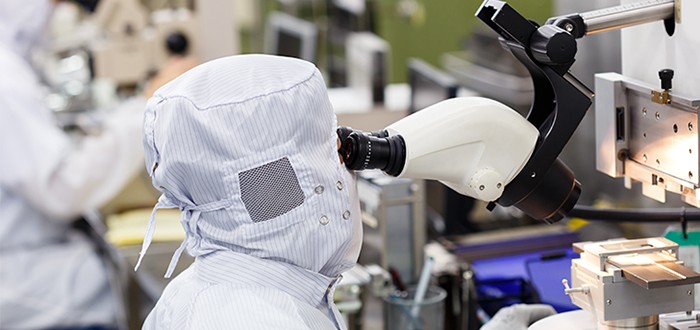Scientists believe they now have compelling evidence to support theories that mutated BAP1 genes are where the action’s at when it comes to treating mesothelioma with advanced therapeutic agents.
Researchers from Memorial Sloan Kettering Cancer Institute in New York City recently announced the results of an investigation confirming that there is a high prevalence of BAP1 mutation-driven inactivation in mesothelioma.
This inactivation of BAP1 is what helps mesothelioma get started. As a result, the researchers assert, BAP1 should be seen as an excellent pathway for developing and testing targeted mesothelioma therapies.
The researchers laid out their findings for attendees of the American Society of Clinical Oncology’s June annual meeting in Chicago.
They told attendees that understanding a tumorigenic mutation like BAP1 is of paramount importance in the effort to produce mesothelioma treatments that are effective.
But the researchers also conceded that past efforts to do so have met with limited success.
Asbestos-Mutated BAP1 Plays Mesothelioma Role
What the team from Memorial Sloan Kettering did that’s different is they conducted highly systematic testing on mesothelioma using next-generation sequencing with matched patient germline controls.
The researchers started by taking 40 mesothelioma patients and conducting a test to produce an integrated gene-mutation profile for each of them. They refer to this test by the acronym IMPACT.
Being a Memorial Sloan Kettering effort, the mesothelioma center’s initials — MSK — are tacked on in front of the test’s name, officially making it MSK-IMPACT.
An MSK-IMPACT test entails using solution-phase exon capture technology combined with next-generation sequencing of 341 of the most important cancer-associated genes.
If the gene is one for which there is or soon will be a novel drug treatment available, it’ll be among that group of 341.
The idea behind the test is simple. Whichever of the 341 genes is encountered among mesothelioma patients most often will likely prove to be the guiltiest culprit — here, guilty of causing mesothelioma.
Guess which gene turned out to be the one encountered most often? Correct. BAP1. Its mutated form showed up in 57 percent of the samples tested, according to the researchers.
The researchers inferred from this that the mutated BAP1 gene will prove to be the best pathway other researchers can choose for developing and testing targeted mesothelioma therapies.
In addition to presenting these findings before the conference attendees, the researchers also published them in the Journal of Clinical Oncology.
Mesothelioma Researchers Looked at BAP1 Before
This investigation builds on research reported last autumn by scientists at Fox Chase Cancer Center in Philadelphia.
The Fox Chase team’s findings helped solidify the notion that mesothelioma susceptibility is passed down from generation to generation via BAP1 gene mutations.
Before it mutates, BAP1 is a key gene that controls other genes your body depends on. The Fox Chase mesothelioma researchers uncovered evidence that BAP1 mutates in the face of relentless exposure to the asbestos trapped within the lungs or abdomen.
This mutation promotes susceptibility to mesothelioma. But, worse, this mutation passes from parent to child, the researchers determined.
What that would mean in practical terms is this. Your father worked at a steel mill or served aboard a Navy ship in World War II and was exposed to a lot of asbestos. His BAP1 genes mutated, but he never developed mesothelioma.
Then you were born and started out life with mutated BAP1 genes. Later, you yourself became exposed to asbestos.
Because your BAP1s were already vulnerable, mesothelioma had an almost built-in advantage over your body’s natural defenses.
The only good news these researchers were able to offer was that the presence of BAP1 in mutated form — inherited or not — didn’t automatically spell trouble for later generations.
It just meant that the risk of mesothelioma was heightened, not that the onset of the disease was guaranteed.

